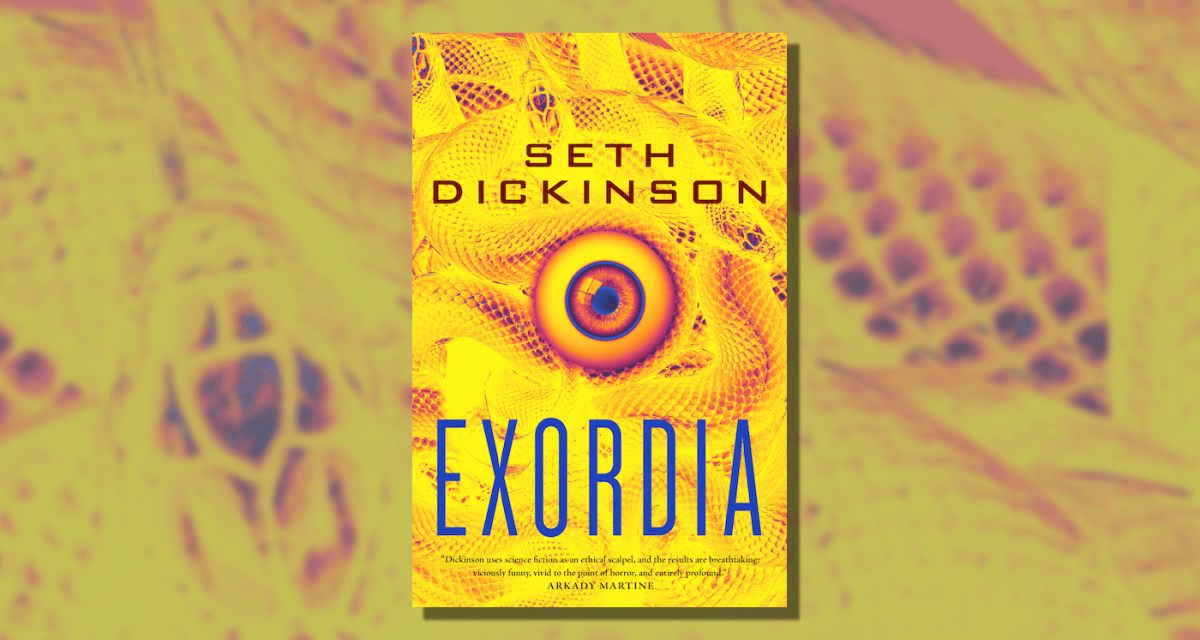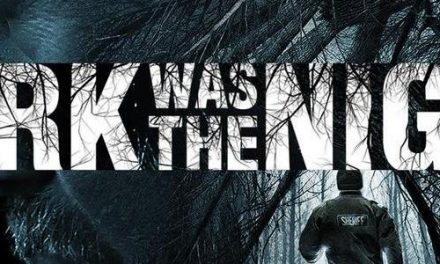Sometimes I come across media which is captivating and engaging, that hits all number of key notes for me, but I remain on the fence about whether or not I can recommend them to people. High Rise (2015, starring Tom Hiddleston) is an example in film, and Seth Dickinson’s Exordia is an example in print. The book starts off “simply” enough: a woman in New York sees an alien chilling in Central Park—an alien no one else can see. She gets pulled into an intergalactic conflict that threatens all of Earth, and all of existence.
What starts with a Venom-esque dynamic (not quite buddy-cop, but alien paired with human fighting against other aliens) quickly unfolds into tense, detailed military engagements, incredibly-researched geopolitics, and conceptual math and physics that could make one’s head spin. It’s a great read, and obviously Seth did a truly mind-boggling amount of homework before writing it, but it feels like some of the story gets lost in the weeds of technical detail.
All of the main characters are fleshed out—it becomes an ensemble cast very soon into the book—and the details of their personal, cultural, technical, and religious histories, attitudes, and politics are well-written to give depth to them, but it times there’s too much going on, and it took a while before I caught on (and could keep holding on) to all of the different story threads weaving together. In the end, I think the work is a complete and very competently-written whole that posits some good messages and asks some good questions, but ultimately didn’t make me excited to read their other works.
All of the main characters are trauma survivors in one way or another—even before aliens emerge and threaten nuclear Armageddon—and while much of that too feels well-researched and treated with respect, at times it almost comes off as cliché; from moral absolutism (in two different, contrasting flavors, no less) to exemplifying the adage that “hurt people hurt people,” it feels almost performative rather than genuine. We see characters largely described and defined by their traumas, and while that’s okay and realistic to some degree, it seems like every character is painted in the same broad strokes, just with different hurt.
Did I enjoy the book? Yes, though much more in the front half than the back, where science and anthropology take a back-seat to extraterrestrial milsim epic. Would I recommend it? Eeeeeeh. I guess, though with less enthusiasm now than I had after the first few chapters.
The fact that two characters are moral absolutists, but on different sides, was an interesting twist and I was excited to explore that aspect of their characters—and of philosophy in general—but ultimately it felt like two unmovable rocks just yelling at each other. There are some great quotes I pulled from the book, but they get lost in a sea of pop culture references and overly weighty hang-wringing.
Reading the afterword explained some of the author’s motivations and mindset while writing, and having that explanation certainly explained some decisions, but I think the genre-switching—slow at first and then quicker as the story wove on—could have used another round of polish (or two). It’s obvious they absolutely know their stuff, or at least had experts in a number of advanced fields on hand, and they definitely have writing chops, but I think the overall storytelling suffered a bit in the attempt to tell this story without compromise. Funny, considering that “compromise” (and those unwilling to) is a major theme throughout.
For those interested in the ideas behind this book without actually having to read it, the short story it started off as—Anna Saves them All—is a much tighter digest.
Header image from Tor books’ release promo



![[HRM] Event Horizon](https://poeticsonline.net/wp-content/uploads/2018/09/jZFsiVp-440x264.jpg)












